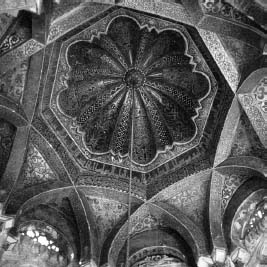IslamHistory and Sources |
What were the first great Muslim dynasties? |
Relatives of Uthman, called the Umayyads, brought Ali down for his complicity in the murder of Uthman. They established a new seat of power in the ancient city of Damascus (Syria), thus inaugurating the first of a series of Muslim dynasties. Under the Umayyads the map of Islamdom expanded dramatically. By the year 711, Muslim armies had claimed ground across North Africa to Spain, and as far east as the Indus River in present-day Pakistan. Consolidation and some further expansion continued under the Abbasid dynasty, which ruled from its newly founded capital, Baghdad, after supplanting the Umayyads in 750. But the early plan for a single unified Islamic domain soon began to unravel. Increasingly aware that Baghdad could not continue to hold its far-flung empire together, regional governors and princes at the fringes began to declare independence. Although the Abbasid caliph would continue to claim nominal allegiance until 1258, the future belonged to countless successor states, from Spain to Central and South Asia.

Mosaic decoration on the main dome of the Great Mosque of Cordoba, Spain, tenth century, over the mihrab, the niche indicating the direction of Mecca toward which Muslims face during ritual prayer.
